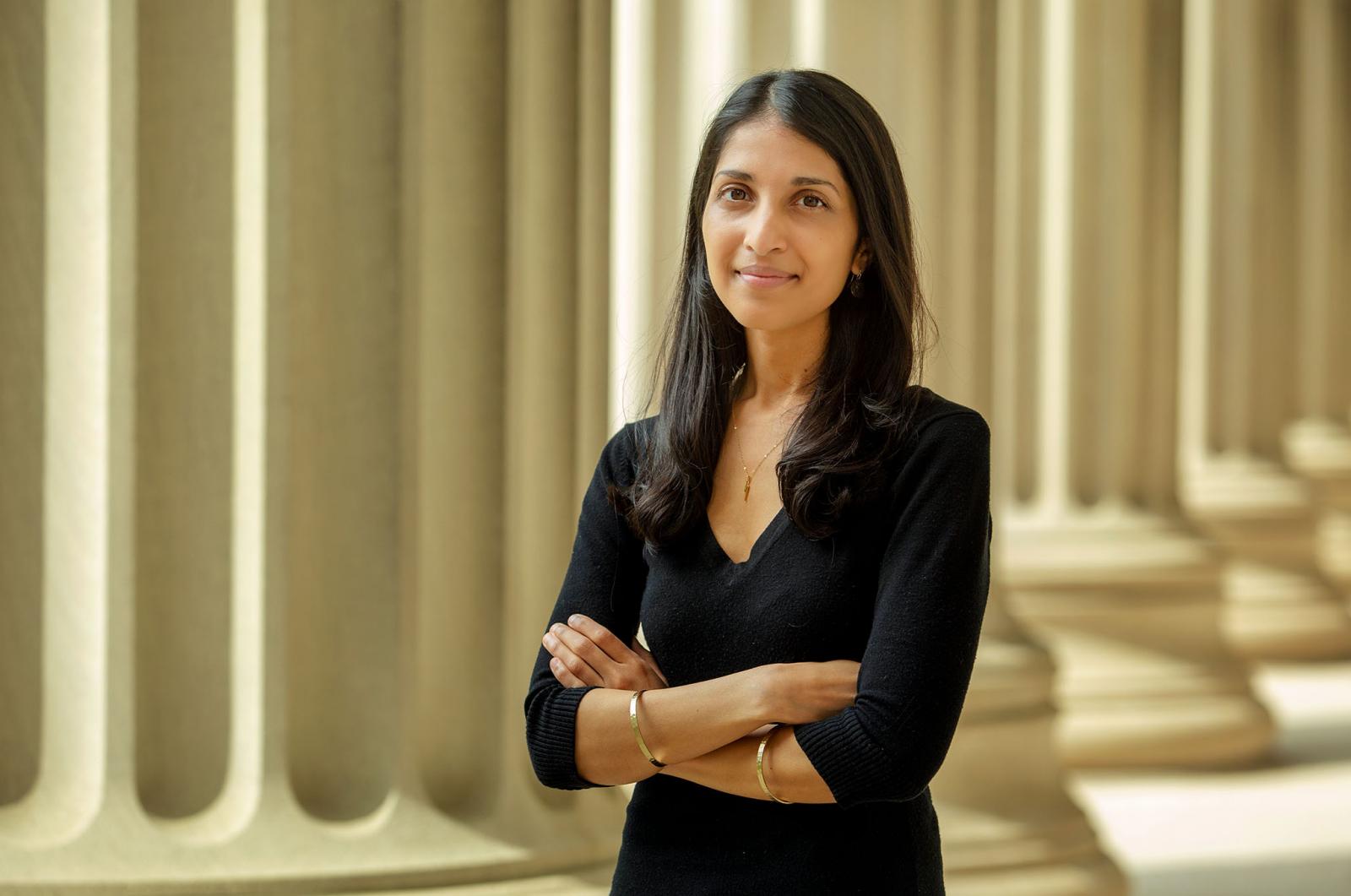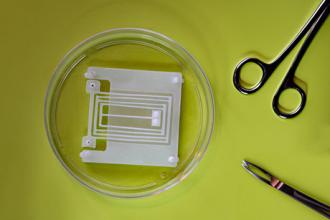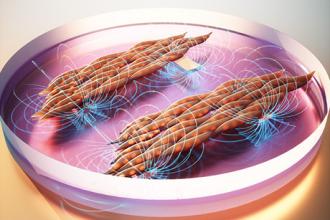
Assistant Professor
Ritu Raman
Eugene Bell Career Development Professor of Tissue Engineering
Interests
- Biofabrication
- Neuromuscular Tissue Engineering
- Biohybrid Robots
Professor Raman News + Media

MIT engineers design flexible “skeletons” for soft, muscle-powered robots
A team led by Professor Ritu Raman has developed a new spring-like device to maximize the work of live muscle fibers so they can be harnessed to power biohybrid bots.

At the forefront of building with biology
Ritu Raman leads the Raman Lab, where she creates adaptive biological materials for applications in medicine and machines.

Wobbly gel mat trains muscle cells to work together
Professor Ritu Raman and her team have designed a vibrating platform that could be useful for growing artificial muscles to power soft robots and testing therapies for neuromuscular diseases.
Faculty Details
Education
-
2012
Cornell University
B.S. Mechanical Engineering -
2013
University of Illinois at Urbana-Champaign
M.S. Mechanical Engineering -
2016
University of Illinois at Urbana-Champaign
Ph.D. Mechanical Engineering
Research Interests
Biological materials have an unparalleled ability to sense, process, and respond to their environment in real-time. The Raman Lab engineers adaptive biological materials powered by assemblies of living cells for applications ranging from medicine to machines.
Currently, the Raman Lab is focused on understanding and engineering biological actuators by applying 4D tissue engineering principles to assemble innervated and vascularized muscle. These multicellular systems help us monitor and manipulate the biological motor control system for disease modeling, regenerative medicine, and soft robotics. Our goal is to help restore mobility to those who have lost it after disease or trauma, and to deploy biological actuators as functional components in efficient and sustainable robots.
Bio
Ritu Raman, PhD is the Eugene Bell Career Development Assistant Professor of Mechanical Engineering at MIT. Her lab is centered on 4D tissue engineering of biological actuators for applications in medicine and machines. Ritu’s research has received several recognitions including the NSF CAREER Award, the Army Research Office YIP Award, and the Office of Naval Research YIP Award. She is also the recipient of the Spira Award for Excellence in Teaching at MIT and the author of the MIT Press book Biofabrication.
Prof. Raman received her BS from Cornell University and her PhD as an NSF Fellow at the University of Illinois at Urbana-Champaign. She completed her postdoctoral research as a L’Oréal For Women in Science Fellow and NASEM Ford Foundation Fellow with Prof. Robert Langer at MIT.
Honors + Awards
Selected Awards:
- 2025, Presidential Early Career Award for Scientists and Engineers (PECASE)
- 2025, BMES CMBE Rising Star Junior Faculty Award
- 2024, Office of Naval Research YIP Award
- 2024, ASME Rising Star of Mechanical Engineering Award
- 2024, Advanced Healthcare Materials Rising Star
- 2024, Eugene Bell Career Development Chair of Tissue Engineering
- 2024, Terasaki Institute Young Innovator Award
- 2024, Ruth and Joel Spira Award for Excellence in Teaching
- 2024, Advanced Science Young Innovator Award
- 2023, MIT Faculty Founder Innovation Fellowship
- 2023, NSF CAREER Award
- 2022, Army Research Office YIP Award
- 2021, National Academy of Sciences Kavli Frontiers of Science Fellow
- 2021, Brit and Alex d'Arbeloff Career Development Chair in Engineering Design
- 2019, MIT Technology Review 35 Innovators Under 35
- 2019, Science and Sartorius Prize for Regenerative Medicine and Cell Therapy
- 2019, AAAS IF/THEN Ambassador for Women in Science
- 2018, Forbes 30 Under 30, Science
Teaching
2.001 | Mechanics and Materials I
2.797 | Molecular, Cellular, and Tissue Biomechanics